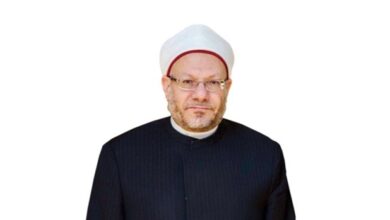As we bid farewell to 2010, a flood of reports seeking to wrap-up and assess the year’s main events continues to bombard consumers. Few of them, however, address what 2010 meant for Islamic reformist ideas.
The year dealt a serious blow to a clique of contemporary Muslim intellectuals who sailed against the fundamentalism’s sweeping tide. Egyptian Nasr Hamid Abu Zayd, Algerian-French Mohamed Arkoun, and Moroccan Mohamed Abed al-Jabri, three of the Muslim world’s most controversial Muslim intellectuals, passed away in 2010. They belonged to a generation of thinkers steeped in Islamic heritage but exposed to Western philosophy. The duality allowed an original perspective on the Qur’an and Islamic tradition.
Inspired by post-modernism, these thinkers deconstructed the mainstream Islamic discourse contending the existence of a single uncontested interpretation of religious texts. They challenged the very idea of the indispensability of an Islamic state, widely propagated by Islamists, who hold that an Islamic order is required for the sake of implementing “true” Islam.
By denying the existence of any one correct interpretation of Islam, the reformers endorsed secularism as a form of state where no interpretation could be held as canonical. Simultaneously, they called for a historical interpretation of the holy text and Islamic heritage in order to distinguish the changeable from the unchangeable in an attempt to reconcile Islam with modernity.
Unsurprisingly, critics attacked the reformist ideas and accused them of borrowing blindly from Western thought, breeding secularism and threatening faith. Yet, such criticism did not dissuade these thinkers from sharing their thoughts at a time when Islamists fully controlled the Muslim world’s conscience.
“The death of these three thinkers is certainly a big loss for Islamic reformation,” says Asef Bayat, Professor of Sociology and Middle East Studies at University of Illinois. “These are times in which we urgently need the diffusion of their ideas among the larger public.”
In May 1992, Abu Zayd, assistant professor of Arabic Studies at Cairo University, applied for promotion to the rank of professor. Yet, one of the adjudicators, known for his staunch Islamist leanings, accused Abu Zayd's of demonizing Islam in his writings while a former vice-president of the State Council spearheaded a suit accusing Abu Zayd of apostasy. The court issued a verdict in favor of the plaintiffs to separate Abu Zayd from his Muslim wife.
Following verdict, the couple fled to the Netherlands where Abu Zayd gained a prestigious teaching position at the University of Leiden.
“Abu Zayd had an innovative way of reading Islamic heritage,” says Mona Abaza, professor of sociology at the American University in Cairo, pointing out that he not only tended to interpret religious texts in historical context, but also to investigate the act of interpretation itself.
Throughout his career, Abu Zayd stressed the need to place holy texts in their historical contexts. To better understand the Qur’an, the socio-economic context of how it was revealed should be studied, he argued. In cases where such context no longer existed, the original injunctions could be upheld.
Abu Zayd faced fierce critique from detractors who accused him of seeking to weaken the Qur’an to the point where it could eventually become obsolete. During a public lecture held in Cairo two years before his death, Abu Zayd held that the Qur’an derives eternal life not from precise injunctions but from universal values, such as justice, equality, and tolerance, explicated therein.
Two months after Abu Zayd’s disappearance, Arkoun died in Paris at the age of 82 after a long career as a prominent philosopher and a renowned scholar of Islamic Studies. Arkoun was born in the Berber village of Taourirt-Mimoun, and it was there that he received his primary education.
Later, he completed his studies at the University of Algiers’s Faculty of Literature and at Paris’s Sorbonne. Throughout his career, he taught at various universities including the Sorbonne, Princeton, and the University of California in Los Angeles. Among his famous works are “The Un-thought in Contemporary Islamic Thought” and “Rethinking Islam.”
“These were intellectuals who had the courage to stand up for their ideas,” says Abaza.
According to Abaza, Arkoun did not limit his struggle to challenging Muslim orthodoxy. He also sought to expose the prevailing Western bias concerning Islam and the Muslim world.
“According to orientalists, Europe produced the clergy and the church and that church was pervasive and despotic. And this is why Europe had to be freed from the church and this is why Europe underwent enlightenment. But when orientalists look at the Muslim world, they say there is no clergy so there is no need for enlightenment. Arkoun said this is crap,” explains Abaza.
Abaza complained that Al-Azhar “is as authoritarian and pervasive as the church.If Al-Azhar says someone is an infidel, all agree…” adds Abaza.
Al-Jabri’s writings delve into the root reasons for the hegemonic thinking in the Muslim world. In his famous encyclopedic trilogy entitled “Critique of Arab Reason”, al-Jabri tried to reconstruct Islamic intellectual history in order to reveal the reasons that underlie a dearth of critical thinking in the Muslim world.
Al-Jabri celebrated Averroes (also known as Ibn Rushd) of twelfth century Andalusia. To him, Averroes’s philosophy could have served as the precursor of an Arab enlightenment, had it not been overshadowed by the influence of instructional mysticism developed by Abu Hamid al-Ghazali and other scholars living in the eastern parts of the Muslim world.
Born in the city of Fagig in Morocco in 1935, al-Jabri obtained his PhD in philosophy from Moroccan University of Mohammed V’s Faculty of Arts and Humanities in 1970. He went on to teach as professor of Arab and Muslim philosophy at the same university.
“Al-Jabri was certainly better placed than others in reaching a relatively wide audience” because “he focused on Arab culture as much as he did on Islamic thought” and was “less controversial,” says Hazem Kandil, a PhD candidate at the Sociology Department of Los Angeles’s University of California.
His recent volumes recounted the life of the Prophet’s using verses of the Qur'an, according to Kandil. “Although he was criticized for basically following nineteenth-century French orientalists’ call to rewrite the Qur'an in order of revelation, which is what he did exactly in those volumes, still, scholars of sira, hadith, and tafsir welcomed his contribution,” adds Kandil.
Reformists’ ideas never attracted a large audience in Muslim societies. Most Muslims failed to engage their works. “I think that an important weakness of their ideas is that they remained rather elitist and therefore quite marginal,” says Bayat, author of multiple books and academic articles on Islamism and Islamic though in the Middle East.
“The challenge for the reformation thought is not just the production of ideas; the challenge is also making those ideas part of the popular conscience. There is a need for a mechanism to integrate liberating visions into the life and thought-frame of ordinary people. Only then can these ideas turn into a powerful material force for change.”
According to Kandil, the intellectuals appealed primarily to a western audience. “The notion that Islam is vastly misunderstood by Muslims today was a welcomed suggestion,” argues Kandil, formerly a political science lecturer at the American University in Cairo who designed and taught a course on contemporary Muslim reformists.
“It is indeed a tragedy that these thinkers are no longer with us. Their ideas should be kept alive,” concludes Bayat.




